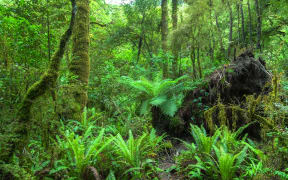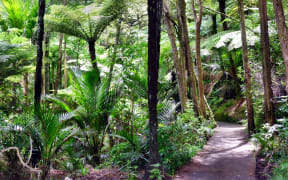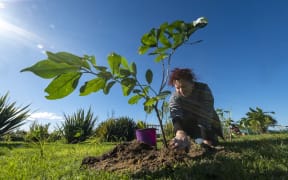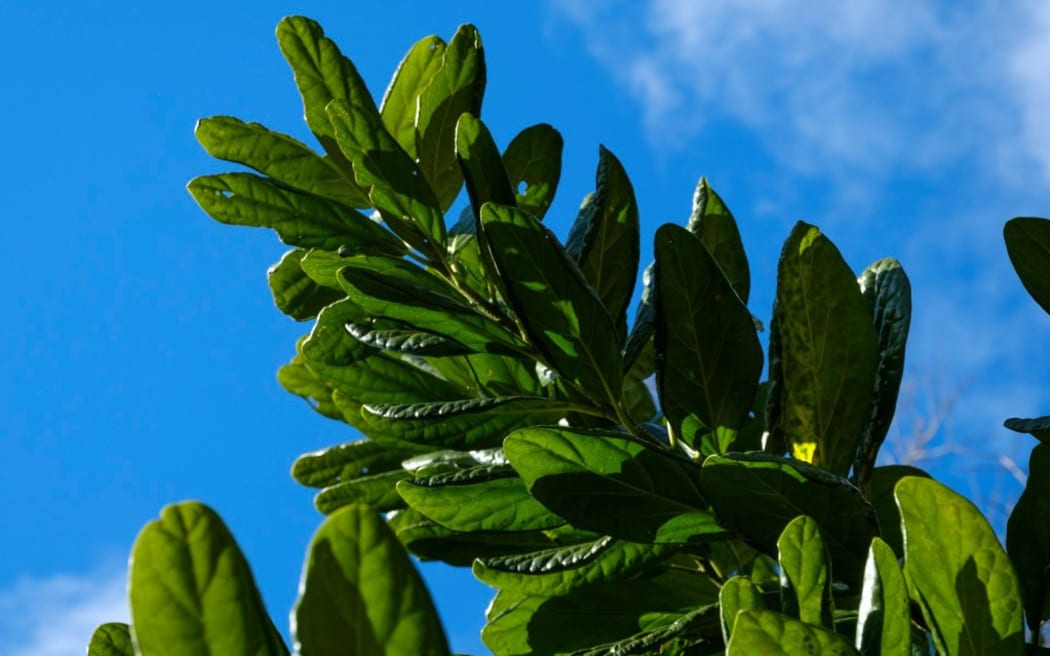
A close-up of new growth on one of the world's rarest trees, the Kaikōmako Manawa Tāwhi (Pennantia baylisiana). Photo: Supplied / Landcare Research
Far north iwi Ngāti Kuri will inject more resource into its successful environmental restoration projects with a $6.6 million Foundation Far North Grant.
The grant will step up and sustain iwi-led projects in the region which have brought multiple endemic species back from the brink of extinction.
Over the next three years the iwi will employ 16 people to support ongoing work and begin important groundwork on projects in development.
Ngāti Kuri Trust Board executive director Sheridan Waitai said traditional ancestral knowledge and building strong partnerships had guided their work.
"This came out of years of working towards resetting our environment, we undertook research to ensure we fully understood the current state ourselves. We used that knowledge to understand how to achieve our own aspirations, our tupuna aspirations and by pulling all those threads together we clarified a way forward and formed partnerships to bring that vision to life."
Ngāti Kuri is leading a series of environmental restoration projects as part of its environmental programme Te Haumihi.
Waitai said the strategy focussed on maintaining a thriving resilient environment while generating economic prosperity.
"Our home is a global hotspot internationally and it has the most concentrated and endemic species globally. If you just go to one of our bays there is more diversity of species than an entire continent that's how special, we are in the world.
"This is actually worth protecting and at the same time it's actually worth sharing ... we want to live in prosperity but not at the expense of our environment."
Projects led by Ngāti Kuri have brought some of the most endangered species in the world back from the brink of extinction.
One of those species was one of the rarest trees in the world, the Kaikōmako Manawa Tāwhi (Pennantia baylisiana).
There was a lone Kaikōmako Manawa Tāwhi tree found on Manawa Tāwhi / Three Kings Islands north of Cape Reinga in 1945, but it took more than 40 years for scientists to successfully increase the rare tree's numbers.
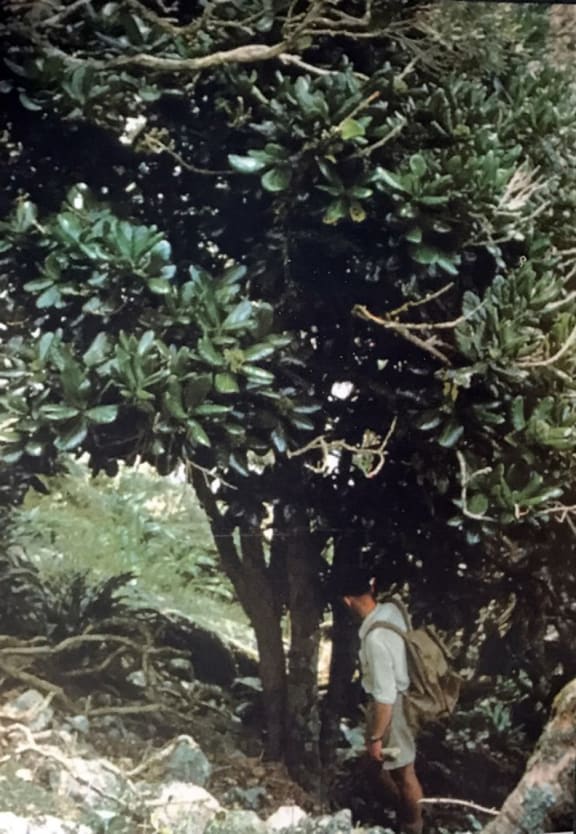
The last wild Pennantia baylisiana on Manawa Tāwhi / Three Kings Islands Photo: Supplied
"We picked up the legacy of our grandparents to actually breed them and we have a programme where we have got 140 of those now and we are about a month away from delivering those back to the island," Waitai said.
The project has also helped restore the Rātā Moehau, a rare shrub located at Cape Reinga.
"There was about 17 of those in the wild, and over four decades our tupuna signalled their decline and what we've done is we've done a breeding programme and now we've got over 500 new plants, we've got six trial sights and we aim to have 4000 out there," Waitai said.
The $6.6m grant will go towards staffing, fencing, trapping, weeding, planting, and monitoring threatened species. It will also support projects maintaining the foreshore and contribute to a freshwater project.
"We have a mix with our team we have those that are haukāinga (live at home) and we have those that live out of the rohe but are Ngāti Kuri descendants. They travel to the top of the island here daily to undertake this work," Waitai said.
The iwi will also continue work on the development of its freshwater plan and maintain and strengthen its work maintaining the health of the foreshore.
